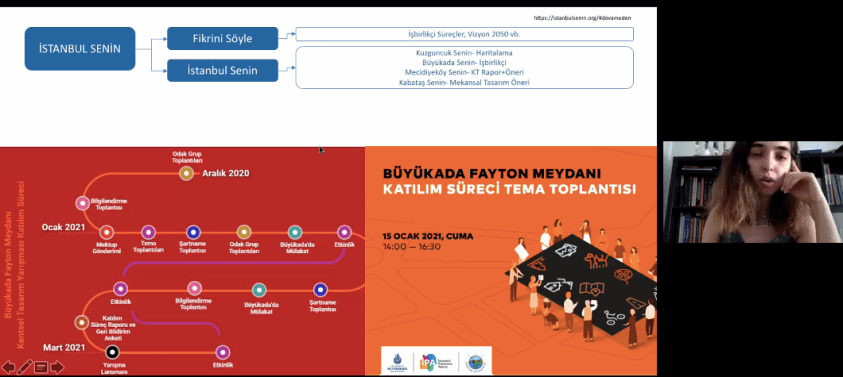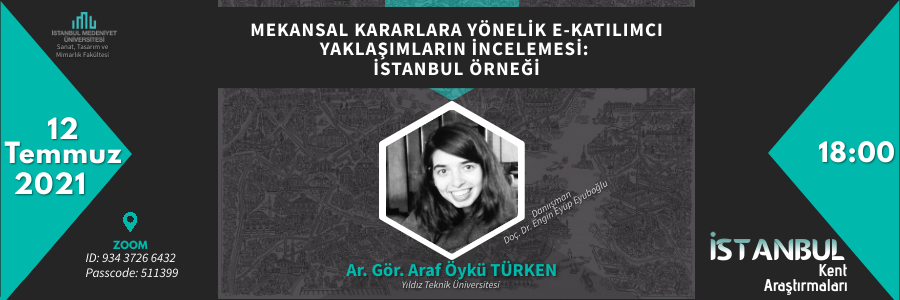The 14th seminar of the “Istanbul Urban Studies” seminar series organized by the Department of Urban and Regional Planning of Istanbul Medeniyet University moderated by our Urban and Regional Planning department member Res. Assist. H. Aysun ÖZKAN YAZAR was held online on Thursday, 12th July 2021. At the seminar, Res. Assist. Araf Öykü TÜRKEN from Yıldız Technical University presented her research titled “Mekansal Kararlara Yönelik E-Katılımcı Yaklaşımların İncelenmesi: İstanbul Örneği” (Analyzing E-Participatory Approaches About Spatial Decisions: The Case of Istanbul).
Aiming to offer suggestions to improve e-participation methods in Istanbul by viewing local and global digital participation platforms, TÜRKEN discussed the benefits of digital participation in urban design, current situation of Istanbul and approaches supporting e-participation processes. The researcher chronologically explained the introduction of participation to the literature on planning as ‘an inclusive concept’ and its transformation by developing geographical information systems. TÜRKEN underlined the change in the concepts of time and space due to improving computer technologies and the rise of ‘network society’ and said that e-democracy and e-participation processes emerged for the communication and decision-making processes between citizen and government. Referring to the importance of using project-based, socio-technical and democratic criteria to evaluate e-participation, criteria mentioned that digital forms of participation have both advantages and disadvantages. She further explained the necessary principles and implementation typologies which should be considered to coordinate e-participation with urban design. In her presentation, TÜRKEN provided global examples that show the integration of techniques used for spatial decision making, such as questionnaire, mapping, PPGIS and 3D city simulations, with participation processes. She also discussed the current e-participation examples in Turkey. After presenting a swot analysis about e-participation, TÜRKEN added that integration between method-focused project development, public-private partnership, double-sided interaction, and collaborative planning processes can optimize e-participation.
The q/a session that followed focused on a discussion on potential handicaps in e-participation, such as decision-making by incompetent individuals and participation based on selection from among limited design options.


